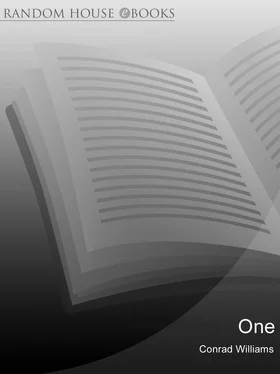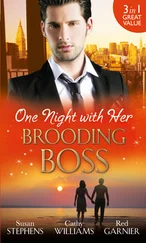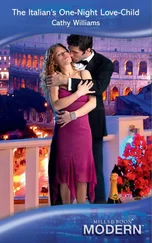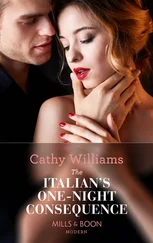He heard something lurching within and he felt himself hoping it was just his own limbs readjusting to cope with the weight of the hatch, but the sound was all wrong, too deep, too fast, too out of rhythm with what he was doing. He was stepping back, feeling his back give with the strain, about to drop the hatch and run, when a ragged, striped cuff shot out of the shadow, peeling back to reveal a claw, giraffe-tongue purple, each curved tip as sharp as a ceremonial blade thinned almost to invisibility on a whetstone.
Jane felt it grip him and jerk him towards the place of his death.
17. STALL WARNING
Fear made Jane laugh and vomit. He ran hard for maybe two miles, until he was so shattered he could barely stand and had to drop to his knees in order to breathe. He was shaking violently; he could still feel the claws on him squeezing as though to assess his tenderness. He wasn't sure where he was; he hadn't really paid any attention to direction. Away was good enough. Now that adrenaline was draining from his muscles he began to become aware of his surroundings. It wasn't exactly the fire after the frying pan, but it was close. He was on the fringes of Hampstead Heath, the southern tip, where part of Gospel Oak train station, including the railway bridge, had collapsed into what had once been known as Mansfield Road.
They liked to congregate in this great park. Maybe something in its wintered desolation called to them. The desiccated trees against the sky like black fractures in unclean ice, agonised, all the sap bubbled out of them and rehardened like angry amber boils. The scorched, stubbled acreage of earth. The ponds filled with bodies: huge bowls of chilled consommé for them to guzzle. They crisscrossed the heath – Jane had watched them from the safety of a Highgate rooftop with his binoculars – like mendicants folded into their rags, deep in thought. Sometimes they dragged partially denuded victims along behind them by the hair, or a limb, to be stowed in the earth on Parliament Hill, or around the Vale of Health, for consumption later.
Jane struggled to think. The cold was freezing his head, turning him sluggish. It was a constant ache in his temples and nape; it had burrowed under his shoulder blades where it burned in his muscles like a slow blue fire. He remembered there was a bolt-hole in Belsize Park. Ten or fifteen minutes from here. It would mean cutting up by the Royal Free Hospital – hospitals were other places where they liked to bed down – but he had to get inside. The Skinner had gripped him so hard he was worried that the skin might be broken.
He ran up through Pond Street to Haverstock Hill and up past the hospital. There was no sign of anybody. Come night-time, though, this car park, this forecourt and street would be a scrum of bodies. He couldn't bring himself to think what the hospital interior must be like. Belsize Park, once a desirable enclave of London, with its beautiful Georgian houses and broad leafy lanes, was now a demilitarised zone. The smell of copper was in the air; buildings were thickly painted with blood. Whatever fighting had happened here had been intensely one-sided. Bins rolled around, pushed by the ceaseless fingers of the wind. Glass teeth ringed grimacing black jaws in every single window along the parade of shops. He hurried as best he could through the obstacle course of felled lamp-posts and telegraph wires. Until he reached England's Lane. At the top of this street was a pub that had been gutted by fire. Inside he saw figures hunched against each other in a corner, under a leaning beam of wood that was mackerel-striped with deep burns. He left them alone. He knew from bitter experience that sometimes such quaking, craven types were really Skinners trying to trick you into coming closer. Sometimes the figures were human, and not as shy or fear-beaten as they seemed. It was best to leave well alone or suffer a preemptive attack. Nobody wanted any comfort any more. Another trait that made humans who they were gradually erased from the banks of race memory.
On Fellows Road Jane paused, listening for movement. He checked behind him but of course the tiger wasn't there. It would be shambling after him, perhaps having made no more than a hundred yards, but it was coming on and coming on. It had Jane's stink in its nostrils and it would not be shaken from its pursuit of him. It had the pit-bull grip on him no matter where he was.
It had come out of that chamber like something being born. Mewls and whiffles and whimpers; breath shuffling in its deep wet throat. He had tried to move back but had felt the blades of its claw pinch his flesh and he had halted, knowing that if his skin were pierced he was dead, if not from infection then from the bloodlust that would be triggered by any open wound. The jaws of the tiger stretched wide, its teeth like twists of black glass. The coke-coloured pits of its eyes were ringed with a dry cake of pus. Its fur had long since lost its gloss; now it was like a thin coat, burred, plated with muck, with a novelty pattern picked up for pennies from a charity shop. There was no hint at the power and grace that had once swaggered within it. He'd dropped the heavy hatch cover, trapping one of its legs as it rolled over the lip. It was too much to hope that he'd broken the limb, not that it would matter; nothing seemed to put a check on their movement, except fire.
Once Jane was sure that he was safe he cut down past the side of the third house on the left to the rear where a large garden had once played host to children. A rusted swing with chains hanging free where a plastic seat had once been tethered; the circular frame of a large trampoline now nothing more than a silent mouth open to the sky. He had spent a lot of time, in those early months, searching for his son and finding evidence of thousands of other children. It was like cataloguing grief. There were scorched photograph albums under beds; children's rooms; playthings torn into nightmare shapes by the heat and the weather. He had found the remains of boys Stanley's age. Some of them were huddled into the far corners of their rooms, the flayed skeleton of a favoured toy in their famished hands. Teeth clenched on a final word, bitten off by pain. Daddy . He had to stop. It was so deeply sad. He wasn't sleeping but whenever he managed to it didn't last long: there was always some blistered bug-eyed thing slinking about in the shadows of his head, limping and stumbling towards him on limbs half devoured by fire.
Jane checked the wall next to the back door. Orange. Inside he moved through a dark hallway almost to the front of the house, his fingers trailing against the failing wallpaper. An edge. He stopped and put his hand to a point halfway down the wall. He pressed hard and fast and felt a magnetic shutter sink slightly against its seal. When he let go, the edge sprang clear of its flush join with the wall: the jib door opened, breathing its musk against him, a smell he never grew tired of sampling. That air had been trapped in here for decades. It was the whiff of safety.
It was really little more than a false wall, but the space was big enough, and long enough to contain a fold-up camp bed, a chair and a narrow table. Jane had a candle burning on the table now. Next to it he'd rested his naked foot; he was prodding the tender flesh of his ankle. A purple bruise encircled it. In places the black indents of claws remained. He had been mighty close to being punctured, but all seemed OK. Regardless, Jane cleansed the skin – revolted by the memory of its filthy entrapment – with alcohol wipes and bandaged it. His foot wrapped in startlingly clean cotton, his fright and exhaustion allayed somewhat by a bracer of vodka, Jane rubbed his eyes and reached for his bible. The Ordnance Survey map was folded tight and secured in a home-made flap in the back cover with elastic bands. He spread it out on the table and plucked the envelope from his wallet. The candlelight shivered for a moment, as if shuddering in sympathy at the tedious task ahead of Jane. Sometimes it took mere seconds: the shape of the paper almost drawing itself to the conjunction of roads that formed its boundaries and from which it had been traced. Other times he would sit blankly for hours like a man with a piece of a jigsaw puzzle that he was convinced belonged to another box. Now he slowly slid that cipher across the map with the tip of his forefinger. Everyone who was committed to the resistance had a copy of this map, published in 1968, or a facsimile of it; teams of copiers had spent days tracing the streets and key features onto sheets of paper. He'd been treated with disdain when he suggested that all maps would contain the same basic shapes. Why not use those? Because they won't have this map , the Shaded told him. And what's wrong with being as cautious as you can be?
Читать дальше












